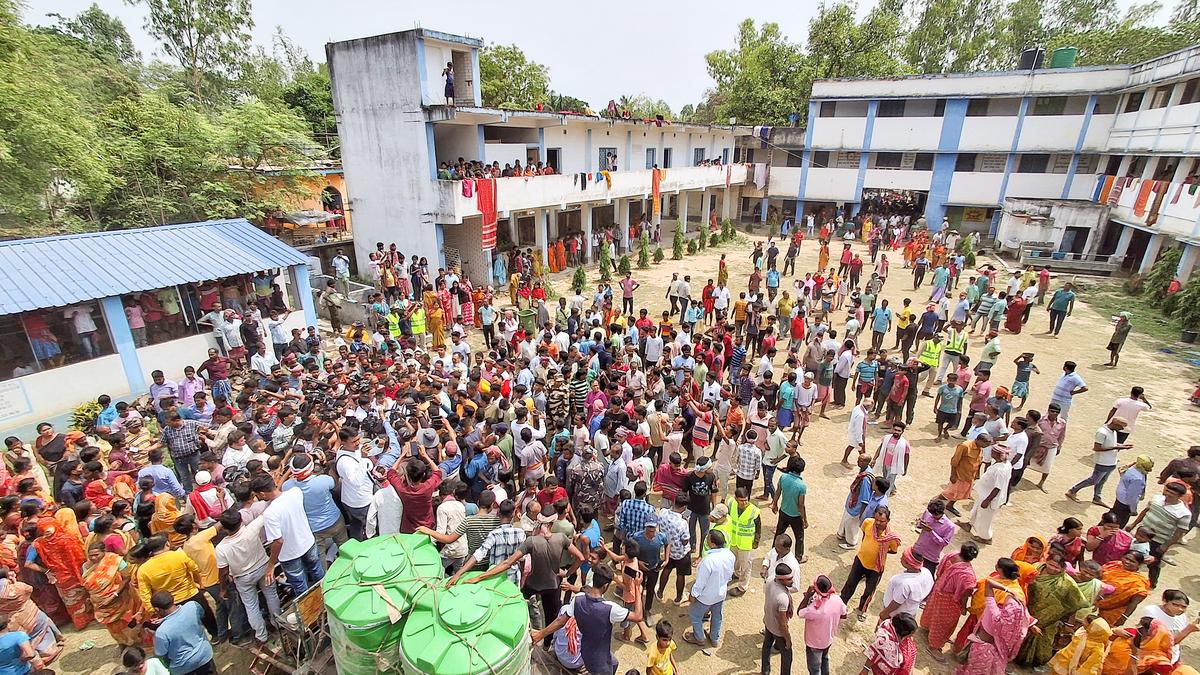Bihar Chief Minister Nitish Kumar on Sunday said his government had taken care of all religions and developed religious sites for Hindus, Muslims, Jains and Buddhists. The CM was speaking at the inauguration of the first phase of the state government’s flagship ‘Har Ghar Gangajal’ scheme in Rajgir, under which about 7.5-lakh households of Rajgir (Nalanda), Gaya and Bodhgaya will start getting piped Ganga water. The Rs 4,000-crore scheme has harvested floodwaters of Ganga to take it to reservoirs in Gaya and Rajgir. During the second phase, due to be completed sometime next year, Nawada will be covered.
The Bihar CM, who was welcomed by public with chants of “Bhavi Pradhanmantri (future PM)”, said: “Our government has worked towards developing religious sites of Hindus, Muslims, Jains and Buddhists. We renovated several ponds of religious significance for Hindus, and also developed Maqdoom ponds. We have worked for all religions. Now that Ganga water reache is here, it will be available at temples and other religious places besides several educational institutions.”
Nitish also targeted the Centre for not approving airport at Rajgir. “A Central team had come here but did not sanction airport here. But we will have our own airport so that people could fly from here to Patna or Gaya,” he said. Alleging non-cooperation from Archaeological Survey of India for not developing ‘Jarasandh Ka Akhada’, the CM said: “Neither ASI is developing it, nor do they allow us to develop it. Now, we have decided to build a Jarasandh memorial on an adjoining plot.”
The CM said that people of Rajgir, Gaya and Bodhgaya and later Nawada would not need to fetch Ganga water any longer. “Now, you have Ganga at your home… You should now stop using ground water so that water table does not deplete in these areas,” he said.
Bihar Water Resources Minister Sanjay Kumar Jha said: “This is the first time in India that floodwater is harvested for the purpose of drinking. It will set an example for flood management. We might well have many firsts in India but Har Ghar Gangajal is a special feat.” Jha added that the project had got international mention for having met four sustainable development goals (SDGs) — good health and well-being; clean water and sanitation; sustainable cities and communities; and climate action.










![Best Weight Loss Supplements [2022-23] New Reports!](https://technologytangle.com/wp-content/uploads/2022/12/p1-1170962-1670840878.png)




